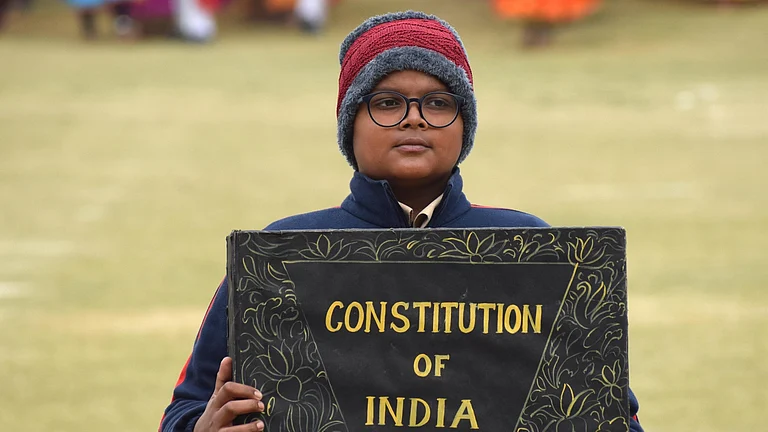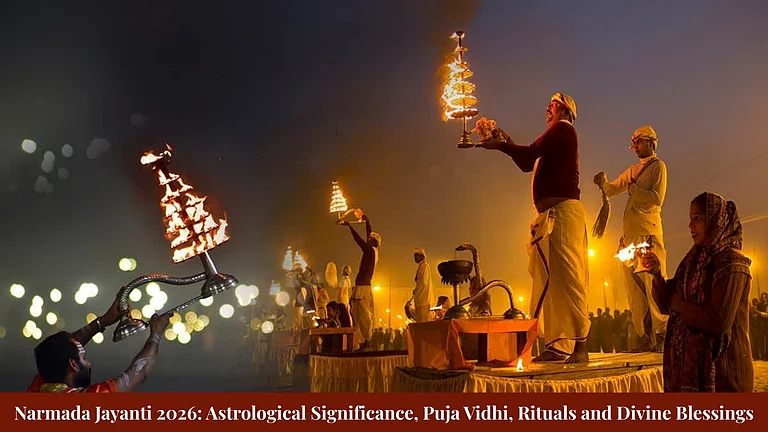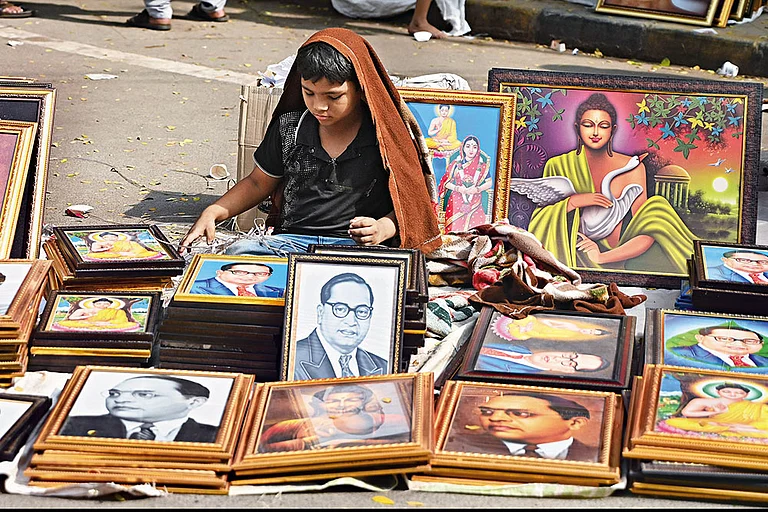Hidden behind a blue door inside a deserted school in Shabbirpur village, a statue of BR Ambedkar has been waiting to see the light of day for five years now. Days before the first phase of Lok Sabha elections 2024 in Uttar Pradesh, residents of the Jatav community, a Scheduled Caste (SC), of Shabbirpur in Saharanpur district, about 150 kilometres from Delhi, remain tense. Five years ago, violence consumed the village following a conflict between Jatavs and the dominant Thakurs after the latter objected to a statue of Ambedkar being erected within the premises of Ravidas temple.
The incident snowballed on May 5, when a procession in honour of Maharana Pratap entered the colony, reportedly unauthorised. The clashes left one Thakur boy from the village dead. Over the next month violence and clashes between the two groups continued. Over 25 homes and property of Dalits were torched and reduced to cinders.
Five years after the violence, dubbed the “Saharanpur riots” of 2017, attempts have been made from both sides to reconcile. Beneath the veneer, however, fault-lines run deep. “We have not been able to put up the statue of Ambedkar even now,” says Paltu Ram, resident and member of Ambedkar Samaj Samiti, a local body formed for the welfare of the Dalit community in the area following the violence. The committee meetings are held in the very school that houses the Ambedkar statue, built by, Chandrashekhar Azad “Ravan”-led Bhim Army, on the premises of the Ravidas temple after it was vandalised in 2017. It is not active anymore. “Many people came and made promises at the time. But no one helped us in the long run,” says 66—year-old Ramvati. Her son Sonu had been accused of the murder of the Rajput boy in 2017. She claims that Sonu was at home when the police came and picked him up at night. “He was not involved in the violence. Police arrested Dalit men from the village arbitrarily,” she states.
Eighty-nine Thakurs and 61 Dalits were named in FIRs for rioting. The violence went on for days and spread to other parts of Saharanpur. Five Dalits, including the sarpanch of the village, were also booked for the murder.

In 2019, Sonu who had the 'draconian' National Security Act (NSA) slapped on him, returned from a court hearing, and consumed poison. “He could not take any more court hearings, I think. Waiting for the sentence, the money spent in legal fees was all too much,” Sonu’s widow Rachna states. She works in the fields owned by Thakurs and feeds her four young daughters. “The Rajputs own all the lands. We have to work on their farms as daily wage labourers. After 2017, it became hard for many of us to get work in their fields. We didn’t want to go either. But then, we had to,” she adds. “What other option do we have?”
Due to their mutual necessity, the relations between Thakurs and Dalits of the village have improved gradually. After all, the Dalits need work and the Thakurs need workers for their farms. But memories of violence persist in the minds of people like Aruna, 24, a local teacher whose brother is still fighting cases dating back to 2017 related to the violence. An aspiring documentary filmmaker, Aruna says that there are no opportunities for work in the area for Dalit youth. “There are schools in villages but no teachers. Many children work in fields for Rs 150 a day along with their parents. Educated adults are forced to migrate to other places” she states.
With the Lok Sabha elections looming ahead, Shabbirpur residents will choose their next leader. Falling within the Saharanpur LS constituency which is currently under the Bahujan Samaj Party, the village has over 800 Dalit votes. The BSP has fielded Majid Ali from the seat, dropping previous MP Fazlur Rehman. The Congress has fielded Imran Masood while the BJP has fielded former MP Raghav Lakhanpal. Ali’s wife was the head of Jila Panchayat committee and worked for the development of the Shabbirpur village, making Majid a popular choice among the SC voters. Lakhanpal had adopted the village in 2019 but residents like Rinku Thakur, who runs a shop in Shabbirpur, state that he did not do anything for the village either.
Residents feel that politicians only care when it’s time for elections. This year, Mayawati has chosen Ambedkar Jayanti to kick off her election campaign and visiting parts of Saharanpur to hold rallies. Saharanpur has been the home ground of Mayawati and Kanshi Ram’s political movements. “We support Behenji, we always have. But we feel alienated. After all, despite having a BSP MP in the district, we have not been able to hold our Ravidas Jayanti parades in peace. We have been forced to change our route. We have not been allowed to erect the statue of Ambedkar,” says Paltu Ram. the statue will be brought out briefly on April 14, to mark his anniversary. Only to be put behind blue doors again until next year.
Saharanpur is set to vote on April 19, in the first phase of general elections 2024. There are around 3 Lakh SC voters in the constituency.




























